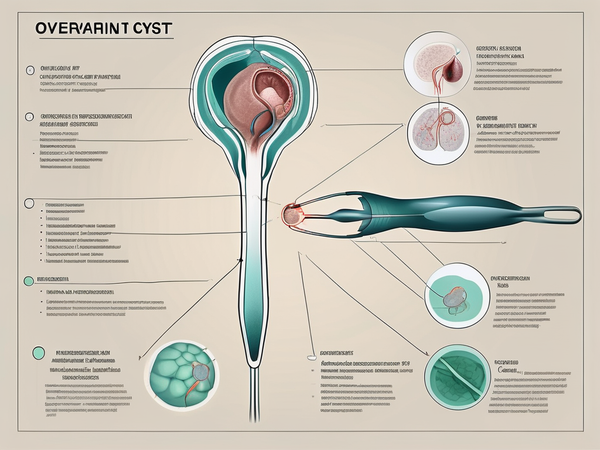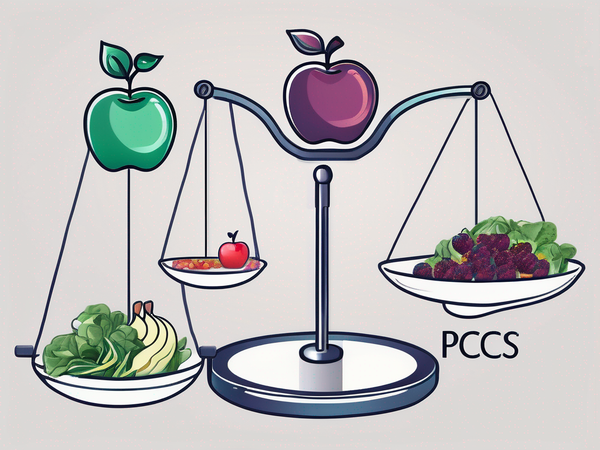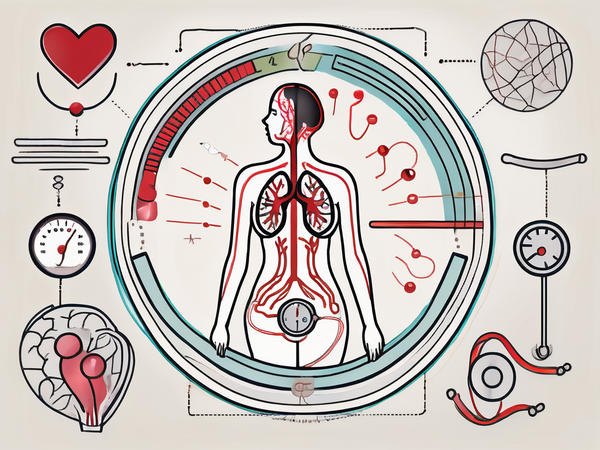Polycystic ovary syndrome (PCOS) is a complex hormonal disorder that affects many women of reproductive age. One of the key ways in which PCOS manifests is through its impact on the menstrual cycle.
Understanding PCOS and Menstruation
PCOS (Polycystic Ovary Syndrome) is a complex hormonal disorder that affects many women worldwide. It is characterized by the presence of multiple small cysts on the ovaries, hormonal imbalances, and often insulin resistance. These factors contribute to a range of symptoms, including difficulties with menstrual regularity.
Menstruation or monthly periods is an essential component of a woman's reproductive health. It involves the shedding of the uterine lining in response to hormonal signals. However, in women with PCOS, the delicate balance of hormones is disrupted, leading to irregularities in the menstrual cycle.
The Extremes of PCOS: Heavy Periods or No Periods
When it comes to PCOS and menstruation, two distinct extremes can occur heavy periods or no periods at all. Some women with PCOS experience heavy and prolonged menstrual bleeding, known as menorrhagia. This can be physically and emotionally challenging, causing discomfort, fatigue, and interfering with daily life. The heavy flow may require frequent changes of sanitary products and can sometimes lead to anemia. Alternatively, other women with PCOS may have very light or no periods. The absence of menstruation, known as amenorrhea, can be distressing and may indicate underlying fertility issues that require medical attention.
Normal Menstrual Cycle: A Brief Overview
Before diving into the impact of PCOS on menstruation, it is important to have a basic understanding of a normal menstrual cycle. On average, a menstrual cycle lasts 28 days, although variations are common. The cycle begins with menstruation, where the uterus sheds its lining, followed by the follicular phase, ovulation, and the luteal phase. Hormonal fluctuations, primarily estrogen and progesterone, orchestrate these stages, and any disruption can lead to irregularities in the menstrual cycle.
The Impact of PCOS on Menstruation
PCOS significantly affects menstruation due to the hormonal imbalances it causes. Elevated levels of androgens, such as testosterone, can disrupt the regularity of the menstrual cycle. These hormonal imbalances can prevent ovulation, leading to irregular or absent periods. Additionally, the excessive production of estrogen relative to progesterone can result in a buildup of the uterine lining, known as endometrial hyperplasia, leading to heavy and prolonged bleeding when periods do occur.
Furthermore, the hormonal imbalances associated with PCOS can also contribute to other menstrual irregularities, such as
- Spotting between periods
- Unpredictable cycle lengths
- Abdominal cramps
These variations can make it challenging for women with PCOS to track their fertility and plan for pregnancy. Individuals with PCOS need to work closely with healthcare professionals to manage their symptoms and optimize their reproductive health.
Recognizing Symptoms of Irregular Periods
Irregular periods are a common symptom of PCOS. It is crucial to be aware of these signs to seek appropriate medical attention and guidance. Some women with PCOS experience unpredictable menstrual cycles, with intervals lasting more than 35 days or less than 21 days. Others may have irregular bleeding patterns, including spotting or breakthrough bleeding between periods.
Common Signs of Irregular Menstrual Cycles
In addition to variations in the length and duration of menstrual cycles, women with PCOS may also experience other symptoms related to irregular periods. These can include
- Severe Menstrual Cramps
- Heavy Flow
- Blood Clots
- Prolonged Periods
It is essential to pay attention to these signs and communicate them effectively to healthcare professionals for accurate diagnosis and appropriate management.
Furthermore, irregular periods can impact not only physical health but also emotional well-being. The uncertainty and unpredictability of menstrual cycles can cause stress and anxiety for women, highlighting the importance of holistic care that addresses both the medical and psychological aspects of irregular menstruation.
The Link between PCOS and Irregular Periods
The strong association between PCOS and irregular periods lies in the hormonal imbalances that characterize the condition. PCOS disrupts the delicate hormonal interplay necessary for regular menstruation. In the absence of ovulation and the proper synthesis of estrogen and progesterone, the menstrual cycle can become irregular, leading to the various symptoms experienced by women with PCOS.
How to Manage Irregular Periods
Managing irregular periods in women with PCOS can be challenging, but a holistic approach combining lifestyle modifications and medical interventions can effectively alleviate symptoms and promote better menstrual health. By addressing hormonal imbalances and unpredictable bleeding patterns through comprehensive strategies, women can improve their overall well-being and quality of life.
Lifestyle Changes for Better Menstrual Health
Implementing healthy lifestyle changes can have a profound impact on menstrual regularity for women with PCOS.
Regular Exercise: Engaging in regular physical activity not only helps in maintaining a healthy weight but also contributes to overall well-being. Exercise can help reduce insulin resistance, a common issue in women with PCOS, and promote better hormonal balance.
A Balanced Diet: A balanced diet with all essential nutrients helps keep the hormonal balance in check. Too spicy foods can disrupt the hormonal cycle and even cause painful periods.
Stress Management Exercises: Incorporating stress management techniques such as yoga, meditation, or mindfulness practices can further support hormonal regulation and menstrual health.
Healthy Weight: Weight plays a significant role in the menstrual cycle, with both excessive weight gain and loss impacting hormonal balance. Excess body fat can elevate estrogen levels, leading to irregular or heavy periods, while low body fat percentage can decrease estrogen production, causing irregularities or amenorrhea. Conditions like PCOS, often linked to obesity, can further disrupt menstrual patterns.
Balancing Supplements: PCOS Supplements with hormone-balancing ingredients such as Inositols, Chasteberry, and Shatavari can help manage PCOS symptoms such as facial hair and acne, regularize periods, support ovulation, and help reduce ovary cysts. They are an easy and convenient method of managing PCOS.
These techniques can help regulate hormonal levels and improve menstrual cycle regularity. Consulting with a healthcare professional or a registered dietitian can provide personalized guidance in adopting and maintaining these lifestyle changes.
Medical Interventions for Irregular Periods
Medical interventions are often prescribed to manage irregular periods caused by PCOS when lifestyle changes aren't sufficient.
Oral Contraceptives:
- Progestin Therapy
- Hormonal Therapy
- Metformin
- Gonadotropin-Releasing Hormone
- Surgical Intervention
Consulting a healthcare professional is crucial for personalized treatment plans. Regular follow-ups and open communication aid in monitoring and adjusting interventions effectively, enhancing menstrual health and overall well-being for women with PCOS.
Conclusion
Understanding and managing PCOS-related irregular periods is crucial for women's overall well-being and quality of life. Recognizing the extremes of heavy or absent periods, understanding PCOS's impact on normal menstrual cycles, and identifying irregular period symptoms is vital. Implementing appropriate management strategies, and combining lifestyle changes and medical interventions, empowers women with PCOS to regain control over their menstrual health and enhance their quality of life. Ongoing research and advancements in PCOS diagnosis and treatment offer hope for improved outcomes for those navigating this complex hormonal disorder.



























 DOWNLOAD NOW
DOWNLOAD NOW
